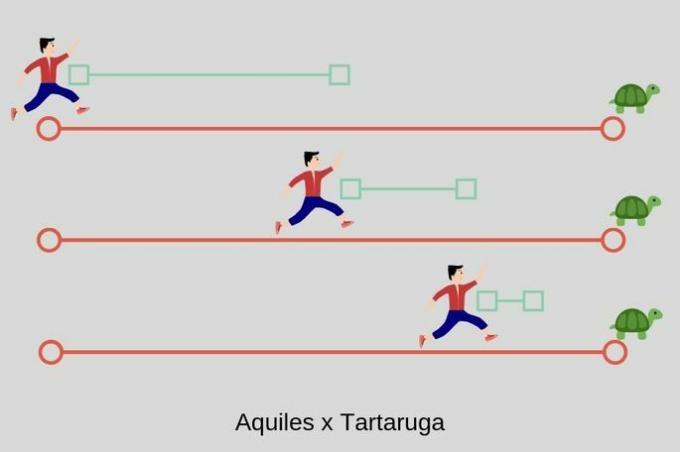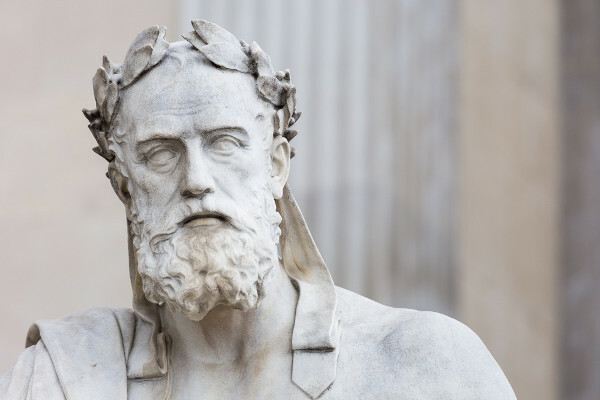Zeno of Elea was one of the big pre-Socratic philosophers of ancient Greek philosophy. A disciple of Parmenides, Zeno contributed to philosophical thought by formulating several paradoxes to prove the flaws in the theses contrary to the thought of his master.
The Eleatic school originated with Parmenides affirms the immutability and impossibility of Heraclitus' perspective that everything is in constant motion.

Zeno was born in 488 a. Ç. in the city of Elea, located in Magna Grecia, present-day Italy.
He belonged to the Eleatic School, where he developed his thinking. he was a disciple of Parmenides (510-470 a. C.), defending his master's philosophy on the studies of being, reason and logic. for the greek philosopher Aristotle, he was the creator of the dialectical method.
In addition to philosophy, Zeno was a professor and was involved in politics. He took a stand against one of the tyrants who ruled the city and was arrested, tortured in a public square and killed. In this event, he refused to denounce his colleagues, dying in 430 BC. Ç.
Construction
Currently, we can find some excerpts from his most outstanding works:
- Discussions
- against physicists
- about nature
- Critical Explanation of Empedocles
Zeno's Paradox
The philosopher elaborated several paradoxes, the most important of which is the one known as “Zeno's Paradox”, undoubtedly his main thought.
This concept was related to the impossibility of the movement defended by Heraclitus. For this, Zeno uses as a metaphor, an Achilles race against a turtle.
In Greek mythology, Achilles he was a very fast-moving Greek hero. However, in Zeno's Paradox, he would lose the race to the tortoise from the rationalization and division of the movement.
The image below that represents the paradox defended by Zeno.

With this, he wanted to demonstrate the inexistence of movement as well as space, time and speed.
From logic, he proved the mistake of things, which leads us to an erroneous conclusion, which in turn seems to be true.
That is, the illusion would generate this erroneous thinking about the world. Thus, he sought to demonstrate the absurdity and falsehood generated by human impressions.
From dialectics, he created several arguments demonstrating the inexistence of movement. It was against the thinking developed by the Pythagoreans, in which the multiplicity of being and the world was explained through numbers.
Thus, Zeno believed in the unity of being at the expense of plurality. In the philosopher's words: “The true is only the one, everything else is non-true”.
Learn more about the topic by reading the articles:
- Pre-Socratic Philosophers
- ancient philosophy
Do not confuse with Zeno of Citium
Very common there is confusion between Zeno of Elea and Zeno of Scythium. Both are Greek philosophers of ancient philosophy, however, Zeno of Scythius (336-263 a. C.) was the founder of stoicism, philosophical theory inspired by nature.
According to him, happiness is found through the understanding of nature and man. In the philosopher's words: “The meaning of life is to be in accord with nature.”
read more:
- Miletus Tales
- Pythagoras
- Brazilian Philosophers You Need to Know

